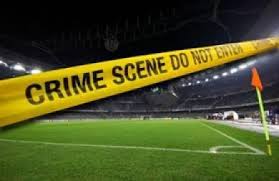By Andrew Warshaw in Manchester
September 10 – Between 60 and 80 countries have reported cases of football match-fixing per year over the last three years. That was one of many stark revelations at a hard-hitting session on the subject at the Soccerex Convention in Manchester today.
Emanuel Medeiros, CEO for Europe and Latin America of the Qatar-based International Centre for Sport Security, said that match-fixing was no longer just a sign of cancer but had spread to deadly proportions.
Medeiros said the current crisis was a “wake-up call” to the authorities to provide more stringent regulation. “It’s urgent to have a unified, credible, concerted effort,” he said. “It’s not acceptable that sporting fraud is considered a crime in only five European countries. We need concrete, robust regulation of the sports betting market which at the moment does not exist.
” We need better regulation, good governance, enhanced prevention and education and a serious international approach. Only if we do these can we put an end to football being dragged into shame.”
Incredibly, Medeiros revealed that there was at least one professional club in Europe currently infiltrated by organised criminals using front companies as owners. “I have evidence that this is case but I will not mention which club or country. I am aware of an ongoing police investigation. It’s a very serious matter.”
The match-fixing session included the signing of a long-term partnership between Sportradar, which monitors online betting patterns worldwide to identify fraud, and the Hong Kong FA.
Under the agreement, Sportradar’s Fraud Detection System (FDS) will provide the Hong Kong FA with intelligence about global betting on more than 100 games per season until July 2017.
In the year that the Hong Kong FA celebrates its centenary, CEO Mark Sutcliffe travelled to Soccerex to sign the agreement which will see Sportradar’s system monitor all 113 games of Hong Kong’s season including league and cup games.
“To have the FDS monitoring all our professional level football is reassuring and to have that in place for three seasons underlines our own commitment to keeping our competitions safe,” said Sutcliffe.
During the session, however, Sutcliffe revealed that Hong Kong was suffering an ongoing case of match-fixing with six players and three officials arrested. “That has a huge detrimental impact on our reputation as a small association,” he told his audience. “We have a court case hanging over us just when our new season is about to start.”
Sportradar director Darren Small said there were cases of players and officials who have moved from one country to another for the specific purpose of getting involved in rigging games. “When you lift the stone, you see a lot of what’s going on,” he warned.
John Abbott, former Vice-president of Interpol for Europe and now a senior advisor on match-fixing, painted an equally worrying picture. “The betting market itself is chaotic,” said Abbott. “The really big change is that professional criminals have got involved for fraud purposes. We have evidence of organised crime groups in China, Russia, the Balkans, America and Italy making substantial money. We are talking about hundreds of billions of dollars. Sports governing bodies and football associations need to get real about prevention.”
Contact the writer of this story at moc.l1744546113labto1744546113ofdlr1744546113owedi1744546113sni@w1744546113ahsra1744546113w.wer1744546113dna1744546113

